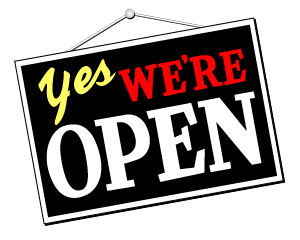
A couple of weeks ago, we posted about the importance of unplugging from social media while at work. However, a business presence on social has become quite imperative. In the digital age, social media has become an indispensable tool for businesses seeking to connect with their target audience, build brand awareness, and drive engagement. With a myriad of platforms available, each offering unique features and demographics, choosing the right social media strategy can be a daunting task. Keep reading to explore the pros and cons of different social media platforms for businesses, helping you make informed decisions tailored to your specific goals.
Pros
- Extensive User Base: With over 2.8 billion monthly active users, Facebook provides a massive audience for businesses to tap into.
- Diverse Ad Formats: Businesses can leverage various ad formats, including image and video ads, carousel ads, and sponsored posts, to capture user attention.
- Detailed Analytics: Facebook Insights offers in-depth analytics, allowing businesses to measure the effectiveness of their campaigns and adjust strategies accordingly.
Cons
- Algorithm Changes: Facebook’s algorithm changes can impact organic reach, making it challenging for businesses to achieve visibility without investing in ads.
- Demographic Shift: Younger audiences are increasingly gravitating towards other platforms, making Facebook less effective for reaching certain demographics.
Pros
- Visual Appeal: Ideal for businesses with visually appealing products or services, Instagram’s focus on images and videos allows for creative and engaging content.
- Influencer Marketing: The platform is conducive to influencer collaborations, providing businesses with opportunities to reach new audiences through partnerships.
- Shopping Features: Instagram’s shopping features enable businesses to sell products directly through the platform, streamlining the customer journey.
Cons
- Algorithm Dependency: Similar to Facebook, Instagram’s algorithm can impact organic reach, necessitating strategic use of ads for broader visibility.
- Intense Competition: With its popularity, the platform is highly competitive, requiring businesses to invest time and resources in producing high-quality content.
Pros
- Real-Time Engagement: Twitter’s real-time nature allows businesses to engage with their audience in the moment, fostering timely interactions.
- Hashtags for Visibility: Strategic use of hashtags can increase the visibility of tweets, enabling businesses to join trending conversations.
- Direct Communication: Businesses can directly communicate with customers, addressing concerns and building a more personal brand image.
Cons
- Character Limitations: The 280-character limit can be restrictive for conveying complex messages or detailed information.
- Fast-Paced Feed: The fast-paced nature of Twitter means tweets can quickly get buried in users’ feeds, requiring consistent posting for visibility.
Pros
- Professional Networking: Ideal for B2B businesses, LinkedIn provides a platform for professional networking, lead generation, and industry thought leadership.
- Targeted Advertising: LinkedIn’s advertising options allow businesses to target specific professional demographics, ensuring their content reaches the right audience.
- Content Publishing: Businesses can establish authority in their industry by publishing long-form content on LinkedIn, showcasing expertise.
Cons
- Niche Audience: While valuable for B2B, the platform may not be as effective for businesses targeting a broader consumer audience.
- Limited Organic Reach: Like other platforms, LinkedIn’s organic reach is limited, necessitating a thoughtful approach to content distribution.
Selecting the right social media platform for your business involves a careful consideration of your target audience, industry, and content strategy. While each platform has its own set of pros and cons, a well-rounded social media strategy may involve a combination of platforms to maximize reach and engagement. Regularly reassessing your social media efforts and adapting to changing trends and algorithms will ensure your business stays ahead in the dynamic landscape of digital marketing.



